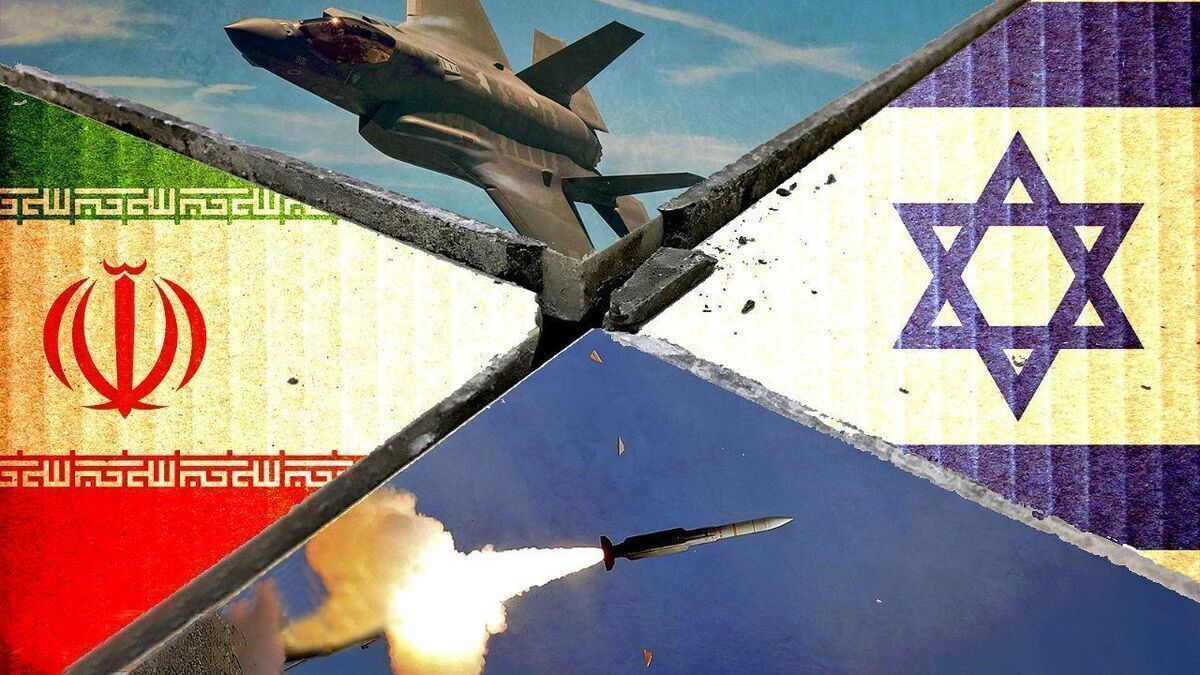Alwaght- After the extensive Iranian drone and missile strikes on the Israeli regime that put the rules of engagement and deterrence equations in the region into a new stage, the lines and limits of regional coalitions are expected to undergo significant changes.
Although the Western countries, as ever, were the steadfast supporters of the Israeli security and managed to intercept a number of the Iranian drones before they could reach the depth of the occupied territories, the important point was the participation of some Arab countries that reportedly did their best like the Western countries to protect the Israeli regime.
Some Israeli media and officials claimed that a number of Arab countries in the region participated in the interception of Iranian attack. These reports caused the Saudi authorities to deny any participation in this coalition, but the Jordanian government officially announced that it participated in the interception of Iranian drones, and for this reason, it was severely criticized by the public opinion of the Muslim world. The Jordanian authorities justified their move under protection of national security and sovereignty, but they essentially defended the Israeli occupation.
Jordan's help to the Israeli regime, which started from their intertwined relations decades ago, was not far from the expectation, but the lack of role-playing by Arab countries of the Persian Gulf in the interception has considerable effects on the process of formation of the desired security order of the US and the Israeli regime under the so-called Arab-Israeli NATO plan.
Until Operation True Promise, there were unofficial reports about the behind-the-scenes cooperation of some Arab countries with the Israeli regime to save its economy amid a Yemeni ban on the Israeli ships and ports in the Red Sea in solidarity with Gaza.
Aljazeera last week reported that reports of UAE, Saudi Arabia, and Jordan providing a land route for transfer of goods to the occupied territories is true, and amid the Red Sea tensions that disrupt the navigation of the Israeli ships, the rulers of the Persian Gulf Arab monarchies are trying to assist Tel Aviv to steer clear of disruption to flow of basic commodities to it. However, Iran's Operation True Promise dealt hard blows to theoretical expectations of the Arab rulers about the efficiency and potentials of coalition with the Israelis.
A mistake to entrust Arab security to Israel
Assistance of some Arab countries to counter Iran's power is not new and concilatory Arab regimes in recent years have tried to form, under the US policies, a coalition with the Israeli regime with the intention of countering Iranian missile and drone power, but due to opposition of some of them, the plan remained ink on the paper.
The Arab countries thought that through a military alliance with the Israeli regime, they could curb Iran's power and influence in the region and guarantee the shaky security of them and the Israeli regime as they claimed, but the landing of Iranian missiles deep into the occupied territories proved that resorting to this regime for protecting their security is a mistake because Israel could not even defend the security of its citizens, and certainly if it were not for the support of the US and other Western countries, much more serious damage would have been inflicted on Tel Aviv.
The UAE and Bahrain over the past three years have signed a considerable number of security pacts with the Israelis to protect their defense body, but so far the Israelis have not done any mentionable moves towards this aim in practice. This may be because the Israelis' major objective behind normalization was breaking out of the historical isolation and enhancing its security pillars against Iran-led Axis of Resistance and not helping Arabs improve their security.
The Israelis have always tried to maintain the regional balance in their favor and prevent the Arabs from gaining military power, just as the leaders of Tel Aviv strongly opposed the construction of a nuclear power plant in Saudi Arabia by the Americans, as well as the delivery of F-35 fighter jets to the UAE. Therefore, the Israelis will never help the Arabs to strengthen their defense power.
It is obvious that any Arab-Israeli cooperation passes through the Saudi normalization with the Israeli regime, and as long as the Saudis do not yield to the normalization, there would be no coalition. Though amid Gaza war some Saudi officials said they will resume normalization process if an independent Palestinian state is formed and war ended, differences still prevail between Riyadh and Tel Aviv. So, as long as Saudis take no steps towards a thaw, other Arab states will remain waiting and will refrain from joining a regional coalition already doomed to fail.
Risks of coalition with Israel: Costs outweigh benefits
Certainly, given the waves of international anti-Israeli criticism for genocidal war of Tel Aviv in Gaza, any Arab cooperation with the Israeli regime in the future will produce negative consequences.
It is certain that due to the unfolding tensions between Iran and Israel, in the future we will see many confrontations between the two sides, either directly or indirectly. Therefore, Arab cooperation with the Israelis will also harm the security of these countries. Because the Israelis are trying to closely monitor the actions of the Islamic Republic of Iran by setting up a base in the Persian Gulf, but given Tehran's warnings that it will counter any Israeli creeping in the region, the monarchies helping Tel Aviv will also pay a heavy price in this confrontation between the two actors and their security will also be jeopardized and they will not be safe from Iranian missiles. This is why the Arab states have announced that they will not allow Israel to use their airspace for a possible attack on Iran. After all, they are well aware of the consequences.
The operations of Yemen's Ansarullah against Israeli and allied ships in the Red Sea sent a stark warning to the concilatory Arab regimes that any stretching hands of friendship to the Israelis will be costly. Since Ansarullah’s main target is the Israeli regime, the movement currently strikes no Saudi and Emirati ships and they can easily sail through the Red Sea, but things will be different if the Arab rulers decide to help the Israelis in any Iranian-Israeli confrontation. If so, Ansarullah will label Arab countries helping Israel as the forces hostile to the Palestinians and will not allow them safe navigation, and this will be costly for Arab monarchies that heavily depend on energy sales for their income. It is logical for Arab monarchies to stay away from the partnership with the Israeli occupation to maintain their security and peace.
Arab countries, particularly the Persian Gulf monarchies, that encourage normalization should know that closeness to Tel Aviv not only does not help solve the several-decade Palestinian case, but also spurs the Israelis to continue occupation and usurp what remains of Palestine, and this would mean that an Arab-trumpeted independent Palestinian state will become history.
The Arab countries that have normalized with Israel should gradually opt out of these agreements, and this will send a clear message to the US-led Western powers that they cannot press ahead with their wrong policies and save their interests. Iran has repeatedly asserted that Persian Gulf security should be protected by regional countries and foreign countries have not right of intervention, and the region will be more secure and peaceful without the Westerners and Israeli regime.



























